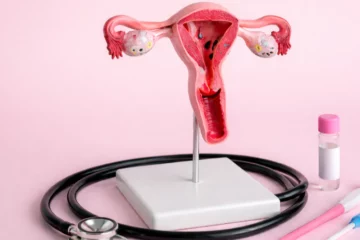
WHEN HILLARY CLINTON seemed to collapse while getting helped into the back of a black van earlier this month, Jane Orient, a physician in Tucson, Arizona, says it felt like a vindication. In early August, she’d published an op-ed on the Association of American Physicians and Surgeons’ website questioning whether Clinton has a traumatic brain injury that would make her unfit for the presidency. And this month, the Association—of which Orient is the executive director—published a survey apparently showing that other physicians believe much the same thing. Almost instantly, that survey made it to Facebook’s coveted Trending Topics section.
For Orient—and the many media organizations that have recently been circulating her work—Clinton’s stumble looked like proof that they were right.
There’s just one thing: Orient and the Association are not just the broad-based coalition of dispassionate, unbiased medical spectators that the conservative media makes them out to be.
Instead, Orient and the Association of American Physicians and Surgeons, or AAPS, have been unabashedly anti-Clinton for decades. Contrary to its official-sounding name, the AAPS does not represent hundreds of thousands of physicians like, say, the American Medical Association does. Instead, the small non-profit based out of a medical park in Tucson represents a niche group of fewer than 5,000 members, not all of whom are doctors. While it claims to be non-partisan, even Orient admits the group has a guiding “philosophy,” one that just so happens to correlate with conservative politics on every issue from vaccine mandates to abortion rights to immigration.
Now, Clinton’s health is the association’s favorite talking point. Orient and others have chimed in on Clinton’s pneumonia diagnosis and her persistent cough. “We’re not diagnosing her,” Orient says. “We’re just saying questions have been raised.”
This isn’t the first time the AAPS has emerged as conservative conspiracy theorists’ favorite signal booster; the organization has existed for nearly three-quarters of a century. But today, thanks to algorithms that decide whether stories are newsworthy, a burgeoning conservative media industry that includes the likes of Breitbart and Infowars, and rampant distrust of mainstream media, the AAPS now has a network ready and willing to broadcast its ideas to millions of readers.
The Friendly Fragmented Media
The AAPS has been rooted in conservative ideals since its inception when a group of doctors opposed to “socialized medicine” founded it in 1943. Since then the AAPS has evolved into a catch-all organization for conservative rebuttals to scientific consensus.
So, you think the vaccination debate is settled? The AAPS says vaccinations cause autism. You think HIV causes AIDS? The AAPS has its doubts. You think indoor smoking bans are good? The AAPS suggested they could be harmful. You say President Obama’s oratorical skills won him the White House? The AAPS thinks he used a “covert form of hypnosis”to win over the public.
“They’re not a national organization that represents any sort of mainstream physicians,” says Paul Offit, a pediatrician and director of the Vaccine Education Center at the Children’s Hospital of Philadelphia. “They’re a political group.”
The AAPS’s agenda is well-documented. In 2009, Mother Jones likened the group’s members to “Glenn Beck with an MD,” citing ties to the Tea Party and its anti-Obamacare activism. In his 2011 book The Panic Virus, Seth Mnookin called the AAPS an “extreme-right-wing group that openly derides ‘evidence based medicine,’” noting its involvement in opposing vaccinations.
And yet, five years after Mnookin’s book came out, the AAPS is still relevant. That’s largely because the current media landscape, fragmented and frenetic, has created the perfect environment for the AAPS to flourish. Under pressure to publish, media outlets increasingly take scientific studies and opinions at face value, without ever double-checking their origins. John Oliver criticized this phenomenon in a recent episode. Meanwhile, unabashedly partisan media sites like Breitbart and Infowars are always looking for evidence that backs up their existing points of view. Orient is now a regular commentator on both.
“Create an organization with a name that sounds official or vaguely like other credible organizations, and you’ll get people in the media taking you seriously without doing two seconds of background research into what this group actually is,” says Mnookin, director of MIT’s graduate program in science writing. “It’s easier than ever for them to do this because of the Internet.”
That’s even more true now that algorithms like Facebook’s are exercising their own news judgment. This month, the social media giant spread that AAPS survey claiming “most doctors” are concerned about Clinton’s health. The algorithm failed to consider that the survey was of 250 of the Association’s own members.
Orient acknowledges that within in the AAPS’ ranks, “there are not too many people who are favorable to Mrs. Clinton.” In fact, in 1993 the AAPS sued Clinton’s healthcare task force. Today, its Twitter feed is awash in anti-Clinton rhetoric. So is Orient’s.
[Source:-Wired]




